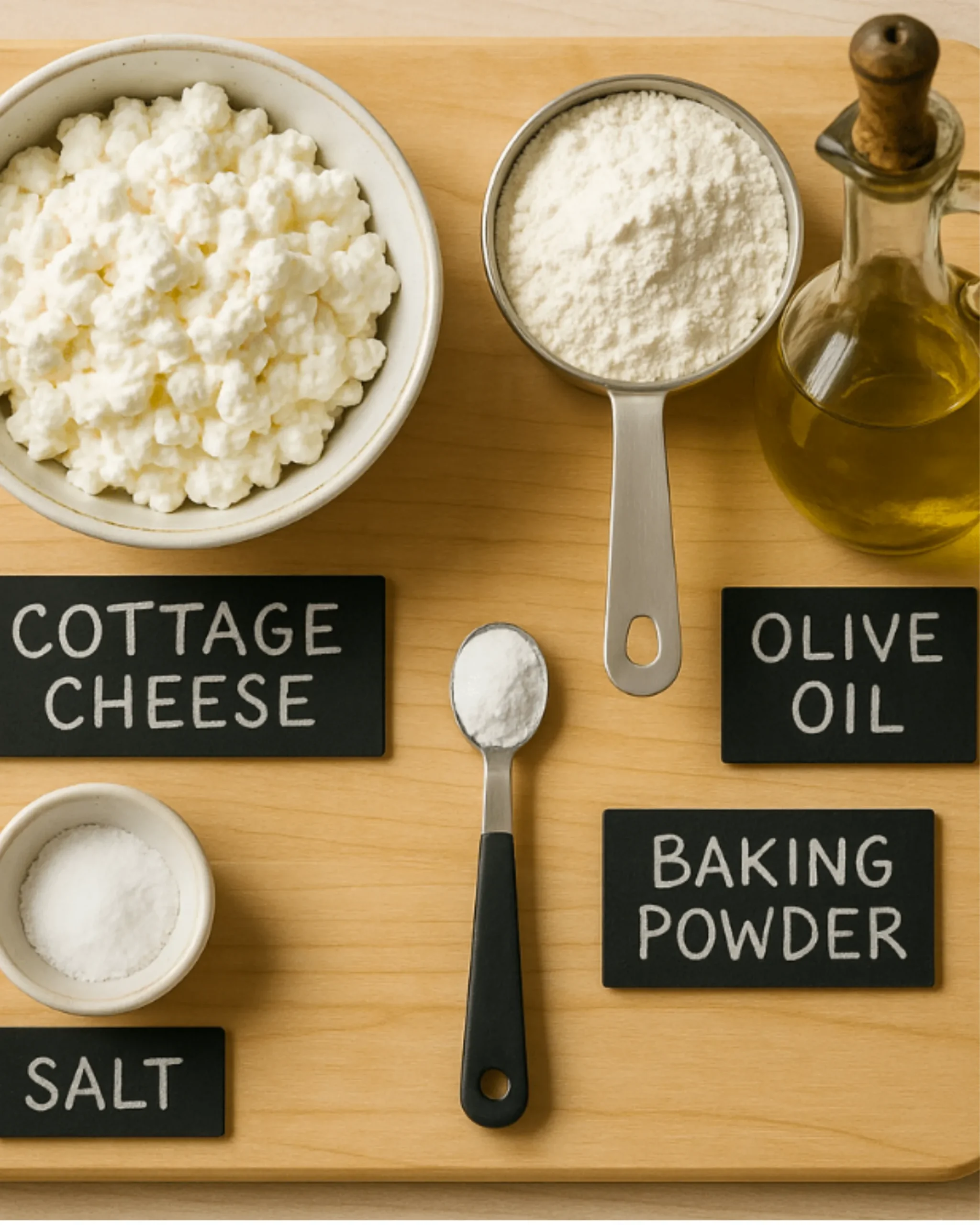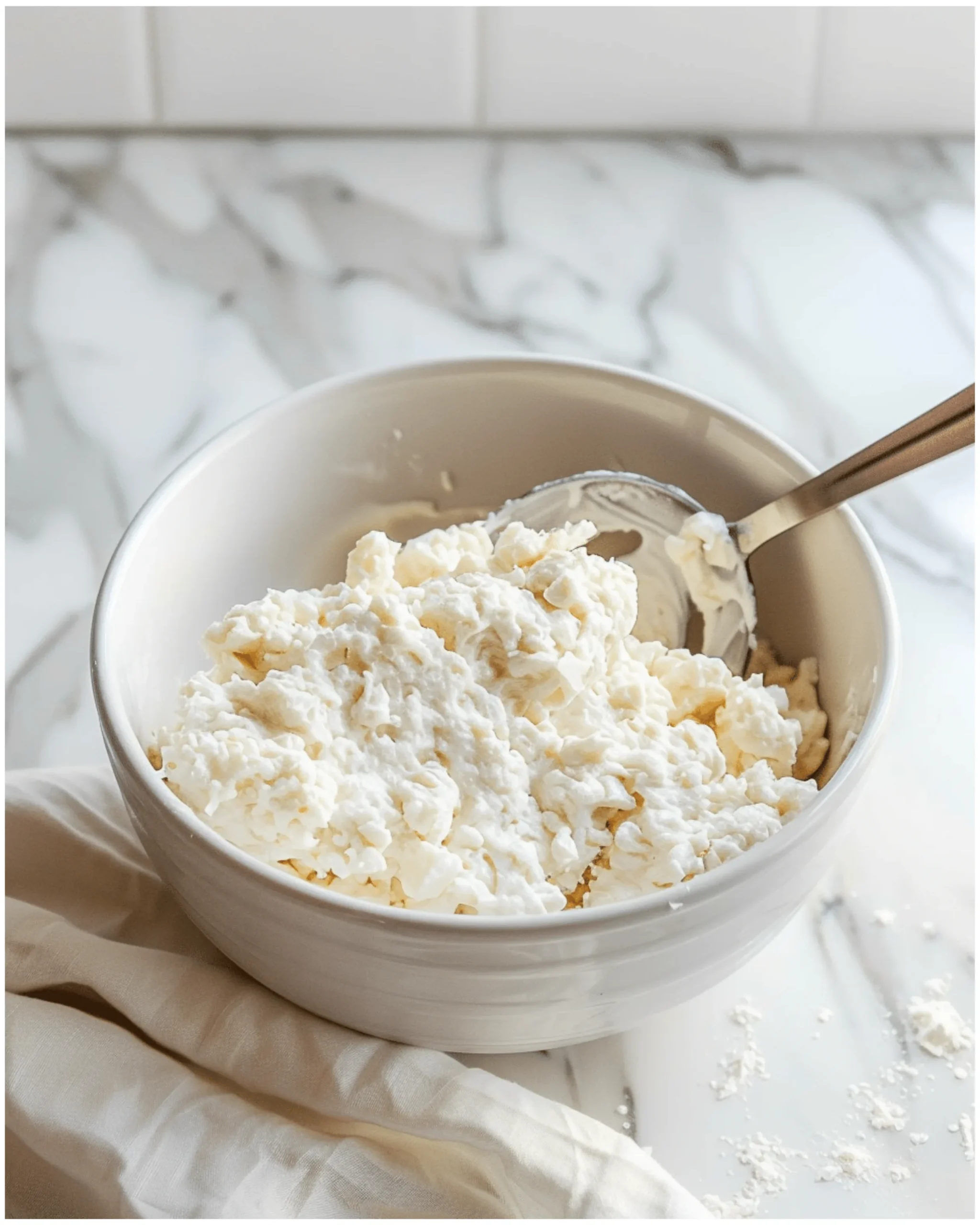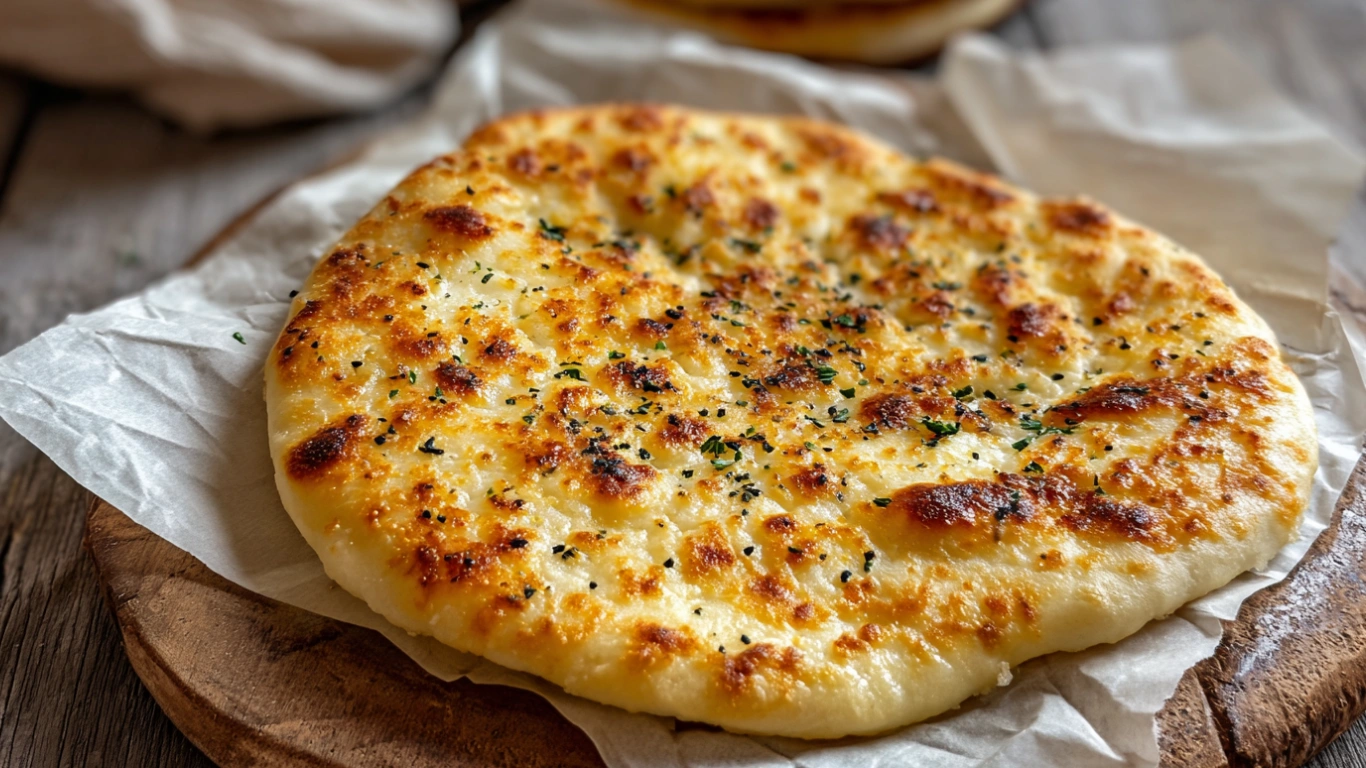here’s something about bread that soothes the soul. I remember coming home from school to the smell of warm dough baking in the oven, and it always felt like comfort wrapped in flour. Years later, when I found myself deep in weeknight dinner chaos, I discovered a quicker, healthier twist: cottage cheese flatbread. One bowl, no eggs, no yeast—and in under 30 minutes, I had fresh, soft bread on the table.
Cottage cheese wasn’t a usual suspect in my baking lineup, but once I gave it a shot, it changed the game. It added protein, gave the dough a beautiful texture, and made the whole process easier. Whether you’re cooking for yourself or feeding a family, this flatbread fits right in simple, hearty, and endlessly versatile.
Why Cottage Cheese Flatbread Works Every Time
Cottage Cheese as the Secret to Soft, Protein-Packed Bread
Cottage cheese is the unexpected hero of this recipe. Its unique texture and mild flavor transform a basic flatbread dough into something moist, soft, and full of protein. Unlike yogurt or sour cream, cottage cheese provides structure without being overly tangy, making it a versatile base for both savory and sweet applications. Because it’s naturally high in protein and moisture, it creates a dough that’s easy to mix and quick to bake—no yeast, no eggs, and no rest time required.
Whether you’re serving it with hummus, grilled chicken, or dipping into stew, it’s strong yet tender just like our Garlic Butter Salmon and Mushroom which adds richness to any simple meal.
The real secret is in draining the cheese just enough. Too much moisture can make the dough sticky, while too little will make it dry and hard to roll. Once you get the consistency right—thick, spoonable, and not watery—everything else falls into place. The curds melt slightly as the bread bakes, giving it a pleasant texture that’s both hearty and tender.
Quick Preparation with Zero Complications
This flatbread skips all the usual fuss of traditional bread recipes. No proofing, kneading, or complicated techniques. You simply combine flour, drained cottage cheese, baking powder, and salt. Mix it in a bowl with a spoon or spatula until it comes together. Divide the dough, roll it flat, and bake. From start to finish, you’ll have hot, soft flatbread on your table in under 30 minutes.
That’s what makes this recipe perfect for busy families, beginner bakers, or anyone needing a fast homemade bread. You can even prep the dough ahead of time and bake fresh when needed. Whether served with dips, used as a wrap, or turned into flatbread pizza, this no-fail method produces consistently great results every time.
How to Make Cottage Cheese Flatbread Perfectly Every Time
Ingredients That Keep It Simple and Wholesome
You don’t need fancy ingredients to make this flatbread. The core components are common pantry staples: all-purpose flour, baking powder, salt, and cottage cheese. That’s it. You’ll want to use full-fat or 2% cottage cheese for the best results—low-fat tends to be too watery. Be sure to drain the cottage cheese before adding it to the dough. Letting it sit in a fine mesh sieve or pressing it lightly with a paper towel will help remove excess moisture and give you a manageable dough.
Optional additions include olive oil (for brushing), dried herbs, minced garlic, or shredded cheese if you want more flavor baked right in. These simple customizations can take your flatbread from basic to boldly flavored.

Step-by-Step Instructions for Fluffy, Foldable Bread
Start by preheating your oven to 400°F (200°C). Line a baking sheet with parchment paper. In a large mixing bowl, combine 1 cup of drained cottage cheese, 1 cup of flour, 1 teaspoon of baking powder, and ½ teaspoon of salt. Mix until a soft, sticky dough forms. You can use a spoon or silicone spatula for this step—no mixer required.
Divide the dough into 4 equal portions. Roll each one out between two sheets of parchment or on a lightly floured surface until about ¼-inch thick. Place each piece on the prepared baking sheet. Lightly brush the tops with olive oil, and if desired, sprinkle on dried herbs like thyme or rosemary.
Bake for 15 to 18 minutes, or until the edges turn golden brown and the center is cooked through. Let cool slightly before serving. The result is a flexible, flavorful flatbread that’s sturdy enough for wraps but soft enough to eat on its own.

Customize & Serve Cottage Cheese Flatbread in Creative Ways
Variations to Try Based on Your Diet
This flatbread is easily adaptable. For gluten-free diets, swap all-purpose flour with oat flour or 1:1 gluten-free flour blends. Want more fiber? Use half whole wheat flour or mix in flaxseed meal for a boost. You can also add shredded spinach, sun-dried tomatoes, or cheese for extra flavor and richness. For a spiced version, try curry powder, za’atar, or even smoked paprika mixed into the dough. On the sweeter side, add a pinch of cinnamon and a drizzle of honey and use it with nut butter or fruit toppings. This recipe is the perfect base to experiment with—great for breakfast, lunch, dinner, or even dessert-style wraps that surprise and satisfy.
Healthy & Filling Without Compromise
One flatbread has about 30g carbs and 10g protein, making it a balanced choice. The protein from cottage cheese makes it more satisfying than store-bought wraps. According to Harvard Health, combining protein and carbs helps stabilize blood sugar and supports steady energy throughout the day. You get better nutrition and real ingredients without preservatives or additives. Cottage cheese flatbread gives you that rare combination of quick prep, great texture, and actual nourishment, which makes it a staple for meal preppers and families alike.

How to Store and Enjoy Cottage Cheese Flatbread Daily
Storage Tips That Keep Cottage Cheese Flatbread Fresh
Let your flatbreads cool completely, then wrap in foil or store in an airtight container. They’ll stay fresh in the fridge for up to 3 days and can be frozen (with parchment between each piece) for up to a month.
To reheat, toss them on a skillet or in a toaster oven. Skip the microwave to avoid sogginess.
Flatbreads are a staple in many kitchens, but when you mix in cottage cheese, something special happens. In this guide, we’re diving into the full recipe and experience of making cottage cheese flatbread—why it works, how to keep it from turning soggy, and a few flavorful tricks that elevate it beyond the basic. Whether you’re counting carbs or seeking a no-fuss, protein-rich snack, this version could become your new favorite.
Smart Ways to Serve Cottage Cheese Flatbread
Use this bread for wraps filled with grilled chicken, avocado, or hummus. For a lighter snack, slice into wedges and dip into tzatziki or salsa. At breakfast, top with scrambled eggs or nut butter and banana slices. It’s also great as a base for flatbread pizzas just bake slightly longer with toppings. Hosting dinner? Pair it with dishes like herb rice salad or garlic butter mushrooms. Drizzle with olive oil and sprinkle with sea salt for a side that elevates any meal.
According to Harvard Health, pairing carbs with protein, like in this flatbread, improves energy balance and can reduce cravings.
You can even turn these into quick sandwich melts, just top with shredded chicken and cheese, then broil for a few minutes. They’re also great as a healthy pizza base or folded into mini quesadillas. Once you try this simple cottage cheese flatbread, it becomes a blank canvas for endless meals.


Cottage Cheese Flatbread
Ingredients
Equipment
Method
- Preheat oven to 400°F (200°C).
- Combine cottage cheese, flour, baking powder, and salt in a bowl.
- Mix until a soft dough forms.
- Divide dough into 4 balls and roll flat.
- Place on parchment-lined baking sheet.
- Brush tops with olive oil if using.
- Bake for 15–20 minutes until golden.
- Cool slightly before serving.
Nutrition
Notes
You can customize with herbs, garlic powder, shredded cheese, or use oat flour for gluten-free version.
Wrap and freeze between parchment for quick weekday use.
From your stove to our hearts
share your delicious take!
Frequently Asked Questions About Cottage Cheese Flatbread
Can you make flatbread with cottage cheese?
Yes, it’s easy to make and turns out soft, high in protein, and flavorful.
Why is my cottage cheese flatbread soggy?
It’s likely too much moisture. Drain the cottage cheese before mixing.
How many carbs are in cottage cheese flatbread?
About 30 grams per serving, depending on the flour and size.
How many eggs for cottage cheese flatbread?
None are needed. The cottage cheese and flour bind well on their own.
Conclusion: Cottage Cheese Flatbread
Cottage cheese flatbread is more than just a clever twist on a classic, it’s a reliable, protein-packed solution for everyday meals. Whether you’re looking for a light breakfast base, a wrap for lunch, or a satisfying dinner side, this recipe rises to the occasion.
With only a handful of pantry staples and no need for special tools, it’s the kind of recipe you’ll find yourself making again and again. And because it’s customizable, you can enjoy it differently each time savory, sweet, topped, or plain.
From my kitchen to yours, I hope this flatbread becomes one of your favorite quick recipes too. Try it once, and you’ll see how easy it is to bring comfort and balance to your table one batch at a time.

